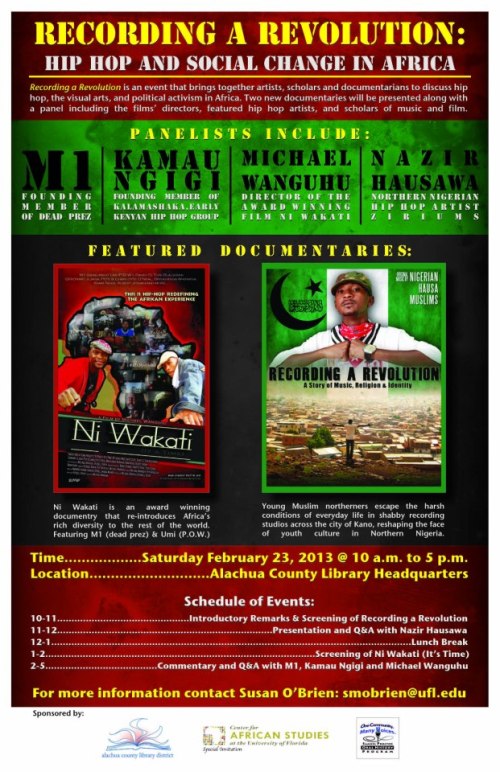(Apologies for the long absence from this blog. The blog administrator was busy trying to finish her PhD. She will try to update this blog more frequently from now on -CM)
Second Call for Papers and Panels
Second Kwara State University Conference on African Cinema (November 26-29, 2014).
Conference Theme:
“African Cinema and the Supernatural”
Venues:
Kwara State University/ Kwara Hotels, Ilorin, Kwara State, Nigeria
Call for Papers
African cinema, especially Nollywood, has shown a remarkable proclivity towards the reiteration of the supernatural. For the most part, the supernatural is embodied in religious precepts and practices. In the world that the African film, especially the Nollywood film, invokes, the representations of gods and goddesses, priests and priestess of different religions are often invested with supernatural powers, which are made to govern everyday activities in the earthly polis. It is for this reason that the loudest criticism of the Nollywood film is focused on the undue emphasis on the supernatural in the world of consumer capitalism. Birgit Meyer cautions that we must place this West African phenomenon in the “wider social context to which it speaks and from where its narratives are drawn (1999).” In other words, it is important that we understand the direct role that religion plays in this visual practice. Jean Comaroff and John L Comaroff (2000) offer a different insight. They argue, for instance, that the “triumph of global capitalism at the millennium, its Second Coming,” has given way to “the exuberant spread of innovative occult practices and magic money, pyramid schemes and prosperity gospel, the enactment, that is, of a decidedly neoliberal economy whose ever more inscrutable speculation seems to call up fresh specters in their wake.” Common to both observations is the belief in religion expressed as the supernatural means of coming to terms with the social and economic debilities of the world in which we live. There is little doubt that the Nollywood film expresses the anxiety of millennial capitalism, the rise of Christian Pentecostalism and the spread of occult practices. This conference solicits papers and panels dealing with the broad themes of religion and superstition in Nollywood. Topics dealing with the role of Nollywood in Africa’s cinematic practices are also welcomed. Of particular interest to the organizers are papers and panels dealing with the representations of different religions; religion and the city; religious consumption in the Nollywood film; representations of local cultures and superstitions; descriptions of evil, the devil, God, magic and “occult economies;” case studies of evangelical church movements in Nollywood; violence, religion, women and the occult economy.
Submissions for individual papers and panels must reach the organizers on or before October 1, 2014. Selected papers will appear in the special issue of Nollywood in Journal of Pan African Studies, California, US.
Confirmed speakers include Professor Jonathan Haynes (Brooklyn College), Professor Afe Adogame (University of Edinburgh, UK), Professor Ken Harrow (Michigan State University, US) and Professor Awam Ampka (New York University). Send queries, paper and panel proposals to: ookome@ualberta.ca, femi.abiodun@kwasu.edu.ng, kwasuworkshop@kwasu.edu.ng simultaneously.


